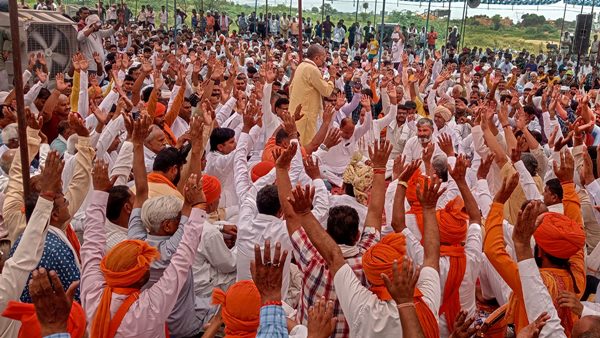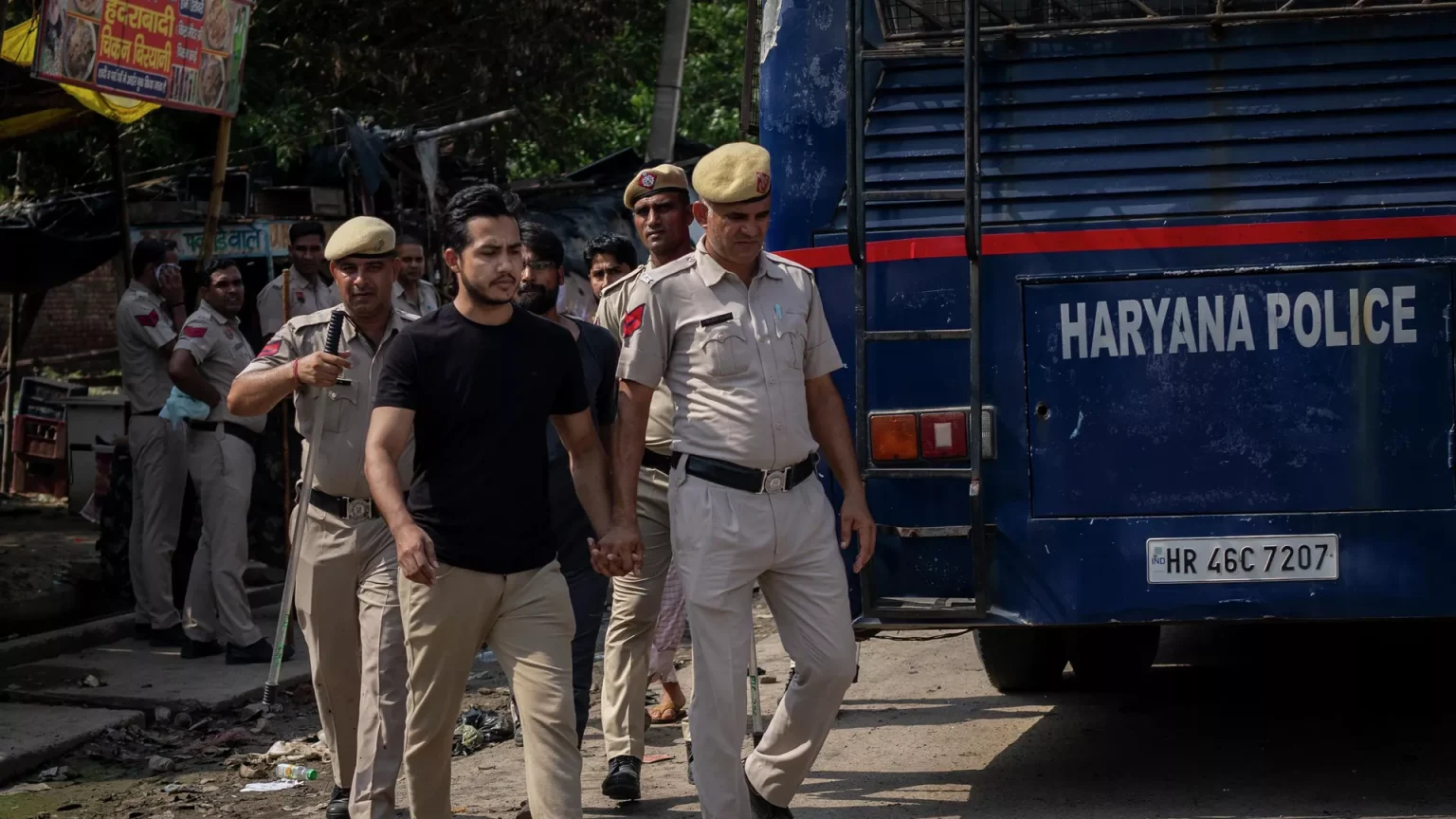Despite the “no hate speech” requirement for obtaining authorization for a significant assembly, a Hindu group in Haryana has recently organized an event that has sparked controversy due to the conduct of certain speakers. Despite being under the watchful eye of the police, some of these speakers went against the organizers’ assertions and issued direct threats during the assembly held in the Palwal district. The incident has raised questions about the efficacy of security measures and the enforcement of guidelines at public gatherings.
The assembly, known as a “mahapanchayat,” was originally planned to take place in Nuh, Haryana, as a platform for discussing the continuation of the religious procession of the Vishwa Hindu Parishad (VHP). This procession, named the “Brajmandal Dharmik Yatra,” had faced an assault in Nuh the previous month. However, due to the denial of permission by local authorities, the gathering was relocated to Palwal, approximately 35 kilometers away.
The decision to move the mahapanchayat was not without its challenges. The organizers, a communal association called Sarv Hindu Samaj, had to navigate logistical changes and security concerns. The Palwal district, where the event is currently taking place, shares a border with Nuh. To address the potential for unrest, the Superintendent of Police in Palwal, Lokendra Singh, laid down specific conditions for granting permission. These conditions included a strict prohibition on hate speech, carrying weapons, clubs, sticks, or any inflammable items. The event was also limited to 500 attendees and was required to conclude by 2 pm. Substantial security measures were put in place to ensure compliance with these conditions.
The assembly itself holds significant relevance due to the recent episode of communal violence in Nuh, which resulted in six deaths over a span of two weeks. This tragic incident has amplified existing tensions and led to concerns about maintaining law and order in the region. The organizers and participants of the mahapanchayat are looking to address these concerns and find ways to foster peace and harmony among different communities.

Hindu group ignores the ‘no hate speech’ requirement
Despite the precautions taken by the authorities and organizers, the assembly has already been marred by the conduct of certain speakers who chose to disregard the “no hate speech” requirement. One speaker was reportedly overheard issuing a warning, stating, “Should you make any hostile gestures, we will take severe action.” Another speaker went as far as advocating for licenses for firearms. Such actions raise questions about the effectiveness of cautionary measures and the role of law enforcement in ensuring the peaceful conduct of public gatherings.
The involvement of various Hindu groups, including Bajrang Dal and VHP, further complicates the situation. These groups were denied permission to host their own mahapanchayat due to concerns about potential disruptions to law and order. However, reports suggest that members of these groups were present at the gathering in question, adding an additional layer of complexity to the dynamics at play.
In the wake of the communal violence and the ensuing tensions, it was not unexpected that the authorities anticipated potential risks associated with the mahapanchayat.
As the assembly unfolds, it remains to be seen how the authorities will respond to the violation of the “no hate speech” requirement and whether legal action will be taken against the speakers in question. The incident serves as a reminder of the delicate balance between freedom of expression and the need to ensure public safety and prevent the escalation of communal tensions.
The relocation of the mahapanchayat from Nuh to Palwal, the strict conditions for permission, and the involvement of various Hindu groups all contribute to the complexity of the situation.
As the region grapples with recent communal violence, the authorities are faced with the task of navigating these complexities and ensuring the safety and well-being of all communities involved.












